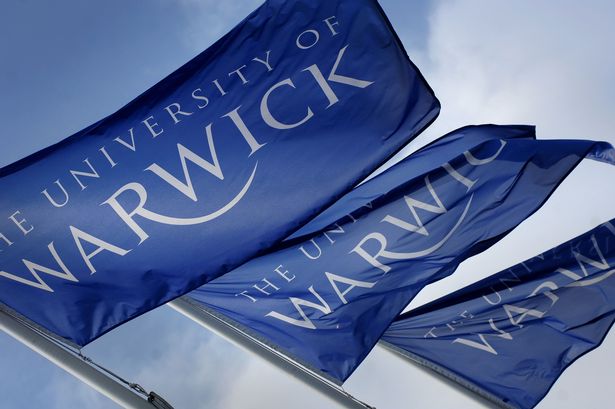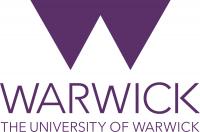History of Medicine (MA)
This MA encourages you to place developments within medical theory and practice in a broad social and cultural framework, and use a wide range of sources available to the historian of medicine (such as medical texts, practice records, diaries, case records, public health reports and health propaganda, and visual sources). Most modules are taught by a team of experts, ensuring that you are exposed to as many different viewpoints and approaches as possible.
The Term One core module ‘Themes and Methods in Medical History’ is designed to introduce you to some of the main historiographical approaches and debates within the history of medicine from the early modern period to the twenty-first century. The module focuses on the evolution of ideas, institutions and practices within medicine, the reception of new approaches and lay responses, the structure of medical practice and the medical professions, and the scientific, social and cultural context of medical intervention.
The Term Two core module, 'Matters of Life and Death' focuses on recent contributions to the discipline, providing you with the opportunity to discuss in depth methodologies and approaches, the research questions underpinning the work and theoretical frameworks, while also relating the seminars to your interests and dissertation research. By studying these texts, you will actively engage with the wide range of sources available.
The final key element is the dissertation - here you have a large amount of freedom to develop a project of your own choice with help and guidance from your supervisor who will meet with you throughout the third term. Throughout the year you’ll be able to take advantage of the Department’s six research centres, especially the Centre for the History of Medicine, and participate in the lively schedule of academic research seminars, lectures and conferences.
The programme will appeal equally to those wishing to undertake further postgraduate study and those pursuing a career outside of the University, equipping you with research, writing and critical thinking skills vital in a range of professions.
Intakes
- Sep
Application Processing Time in Days: 20
Minimum English Language Requirements
| English Level Description | IELTS (1.0 -9.0) | TOEFL IBT (0-120) | TOEFL CBT (0-300) | PTE (10-90) | |
|---|---|---|---|---|---|
| Expert | 9 | 120 | 297-300 | 86-90 | |
| Very Good | 8.5 | 115-119 | 280-293 | 83-86 | |
| Very Good | 8 | 110-114 | 270-280 | 79-83 | |
| Good | 7.5 | 102-109 | 253-267 | 73-79 | |
| Good | 7 | 94-101 | 240-253 | 65-73 | |
| Competent | 6.5 | 79-93 | 213-233 | 58-65 | |
| Competent | 6 | 60-78 | 170-210 | 50-58 | |
| Modest | 5.5 | 46-59 | 133-210 | 43-50 | |
| Modest | 5 | 35-45 | 107-133 | 36-43 | |
| Limited | 4 | 32-34 | 97-103 | 30-36 | |
| Extremely Limited | < 4 | < 31 | < 93 | < 30 |
Job Opportunity Potential
We’ll help you fulfil your ambitions by giving you the skills and knowldge to propel your career further.
Our graduates are some of the most sought-after by leading employers. We are in the top 40 in the world for our reputation with employers (QS World University Rankings 2021), and we were marked out as the third most targeted university nationally by the UK’s top 100 graduate employers (The Graduate Market in 2020, High Fliers Research Ltd).
Earning potential
The value of a Warwick education is reflected in the high quality of job roles that our postgraduates take up after they leave Warwick. The average salary of postgraduates who completed their course at Warwick in 2017 (six months after graduating was £32,000 (Destinations of Leavers From Higher Education survey).
Connect with top employers
We work proactively with a wide range of employers, from start-up organisations to multinationals across all job sectors, meaning you can build connections that help you get ahead:
- Over 7,000 vacancies advertised from employers looking to connect with our students
- Careers Fairs, which may be hosted virtually while social distancing is in place. These will ënable you to talk to graduate employers. You can also find information on topics including CVs and Applications, Interviews, LinkedIn Profiles and Assessment Centres.
Careers support
Your career path is unique to you, so our Student Opportunity: Careers team offer personalised support to help you develop your skills, plan or develop your career path and get experience. You can access a variety of support services from Student Opportunity at any point during your time at Warwick and after graduation.
Support includes:
- Real-time and recorded webinars and virtual workshops, including contributions from graduate recruiters
- Help with job applications and interviews
- Face-to-face and online courses to help develop your skills, including leadership, enterprise and communication
- Access to 1,000s of employer vacancies targeted at Warwick students and graduates
- Careers Fairs, which may be hosted virtually.These will help provide information on topics including CVs and Applications, Interviews, LinkedIn Profiles and Assessment Centres
- Bespoke support from Senior Careers Consultants linked to specific academic departments
If you’re looking to pursue a career in academia or just to hone your research skills, we can support you to develop your academic practice through our extensive range of workshops, events and one-to-one support. Our Masters Skills Programme (MSP) and Research Student Skills Programme (RSSP) and Transferable skills programme allow you to learn at your own pace and choose the options that suit you best.
Work experience
There are many flexible employment opportunities on campus and with local employers, which can provide extra income as well as useful experience and skills development.
Our temping agency Unitemps offers you the flexibility to apply for single shifts, particular days of the week, or even fulltime over several months.
As a research student, you may be able to access teaching opportunities through your academic department. Responsibilities vary, but could include seminar teaching, laboratory demonstrations, or exam and essay marking.
We recommend that you check with your department before starting any part-time work to ensure it doesn’t impact on your academic work. If you’re an international student, you’ll also need to check your visa provisions and restrictions.
Volunteering
Our many student volunteers help to maintain our strong relationship with the local community. They also contribute to wider humanitarian and environmental causes. If you’re keen to help others, you can access a variety of volunteering and campaigning opportunities through Warwick Volunteers, SU societies and special projects like Warwick in Africa.
PSW Opportunity
2-year period
Admission Requirement / Eligibility Criteria
For applicants looking to apply to our Postgraduate Taught or Research degrees, we would require a minimum First class or upper Second only, with minimum 60-80% depending on your institution. Applicants with a 5 year LLB from a recognised Indian institution will be considered with minimum 55-60% depending on the institution.
POSTGRADUATE APPLICANTS: At Warwick, postgraduate courses require a UK degree score of ‘Second class or higher’, however some courses (typically in the Sciences) require a ‘Lower Second (2.2) or higher’ while other courses (typically in the Arts & Social Sciences) require an ‘Upper Second (2.1) or higher’.
English Language Test Bands
All courses have been assigned to one of four International English Language Testing System (IELTS) Bands (A to D). This table indicates the English Language test band assigned to each department/course. Here is a summary of required standards for accepted English Language test bands.
Band A courses
Overall IELTS (Academic or UKVI) score of 6.5 and component scores.
Band B courses
Overall IELTS (Academic or UKVI) score of 7.0 and component scores.
Band C courses
Overall IELTS (Academic or UKVI) score of 7.5 and component scores.
Band D courses
Overall IELTS (Academic or UKVI) score of 8.0 and component scores.
Alternatively if you have not taken an IELTS (Academic or UKVI) test, find out which other English language tests are approved by the University.
- Course Code: P-V3P7
- Course Type: Full Time
- Course Level: Masters/PG Degree
- Duration: 01 Year
-
Total Tuition Fee:
22340 GBP
Annual Cost of Living: 9207 GBP
Application Fee: 80 GBP
Similar Programs
- Philosophy (MPhil) at University of Warwick
- Writing (MA) at University of Warwick
- World Literature (MA) at University of Warwick
- Visual and Material Culture of Ancient Rome (MA) at University of Warwick
- Visual and Material Culture of the Ancient Greece (MA) at University of Warwick
- Translation and Cultures (MA) at University of Warwick

